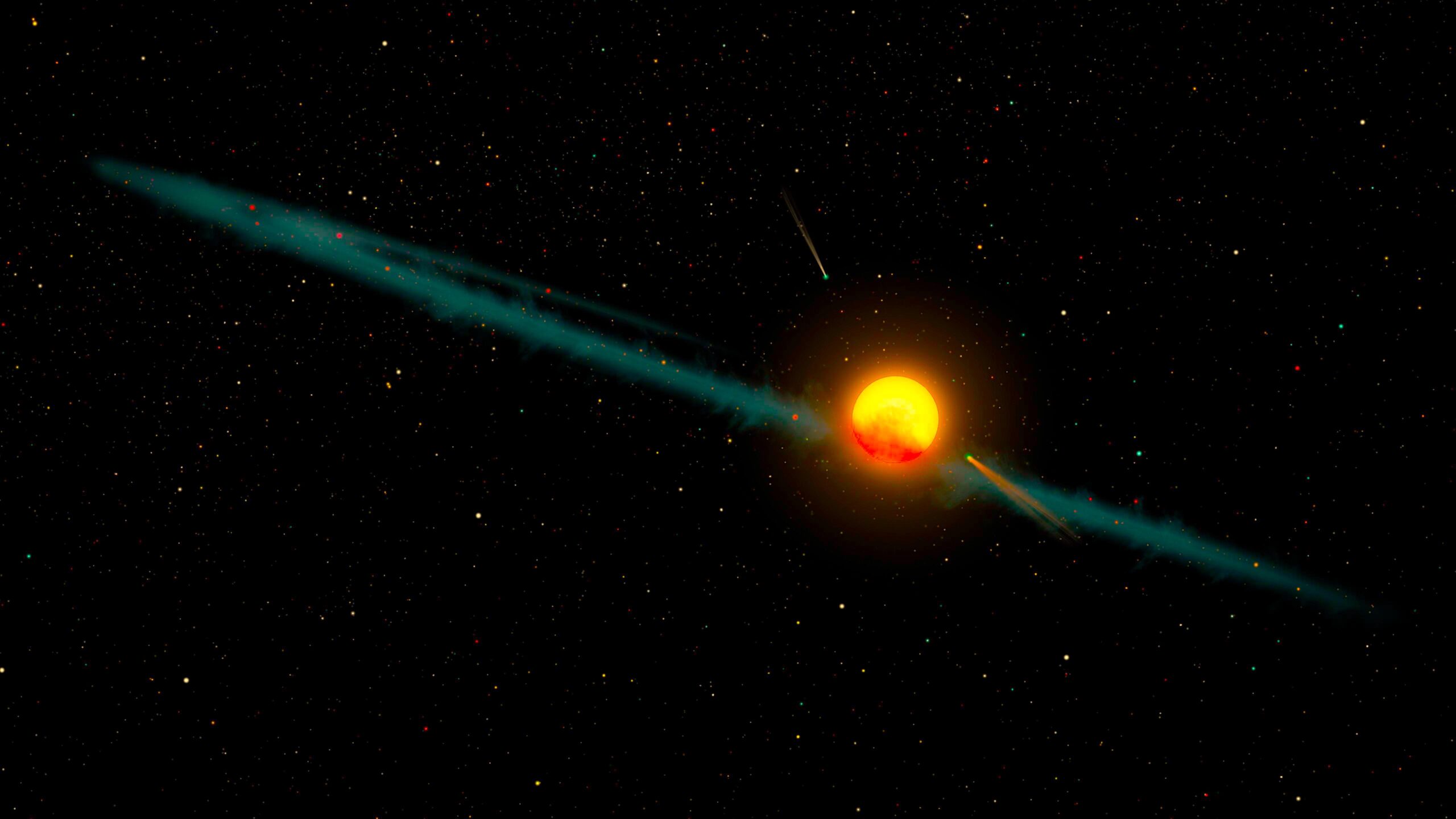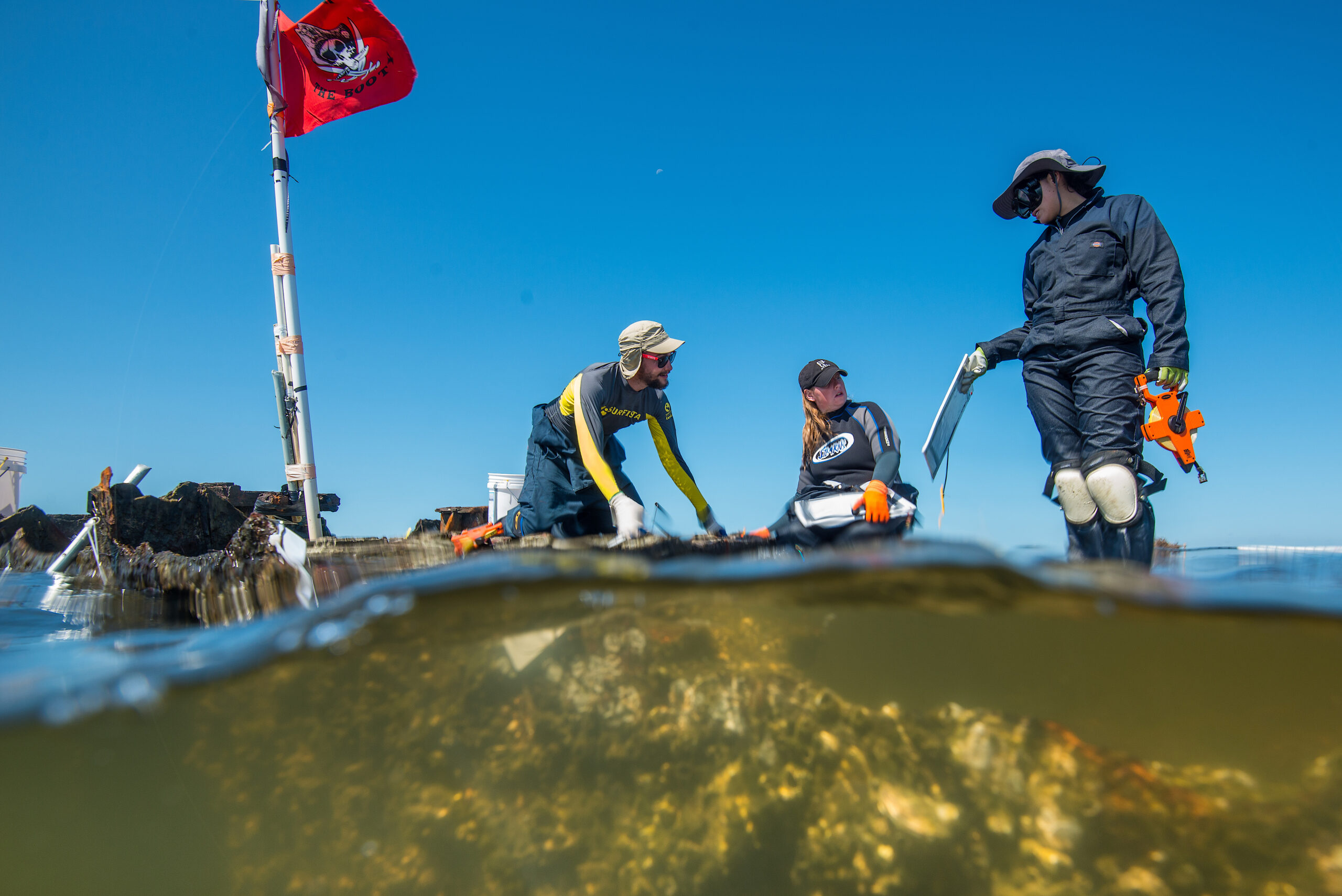Explore with NC Space Grant
North Carolina Space Grant is offering two opportunities to discover distant worlds — and much more — on one big weekend. On April 21, the NC Space Symposium will feature NASA experts and student research in Raleigh. That night and the next, the Statewide Star Party will take place.
Kick off the festivities with NC Space Grant at the 2023 NC Space Symposium and learn about space science, technology, and future flight. Students, experts, and scientists will highlight key research topics, such as technological innovation to harvest essential resources in space flight, advancements in human space flight, and current trends in aviation and the aerospace field. Students will also gain insights about career pathways from experts in their fields.
Learn more and register: 2023 NC Space Symposium
You can also spend the same weekend “Celebrating the Night Sky.” The 2023 North Carolina Science Festival’s Statewide Star Party will provide free sky-watching events at 35 sites along the coast and across the state. Locations include state and local parks, colleges and universities, planetariums, science centers, nature centers, and libraries. About 3,500 visitors are expected to participate.
NC Space Grant perennially supports the Statewide Star Party.
— Sascha Medina
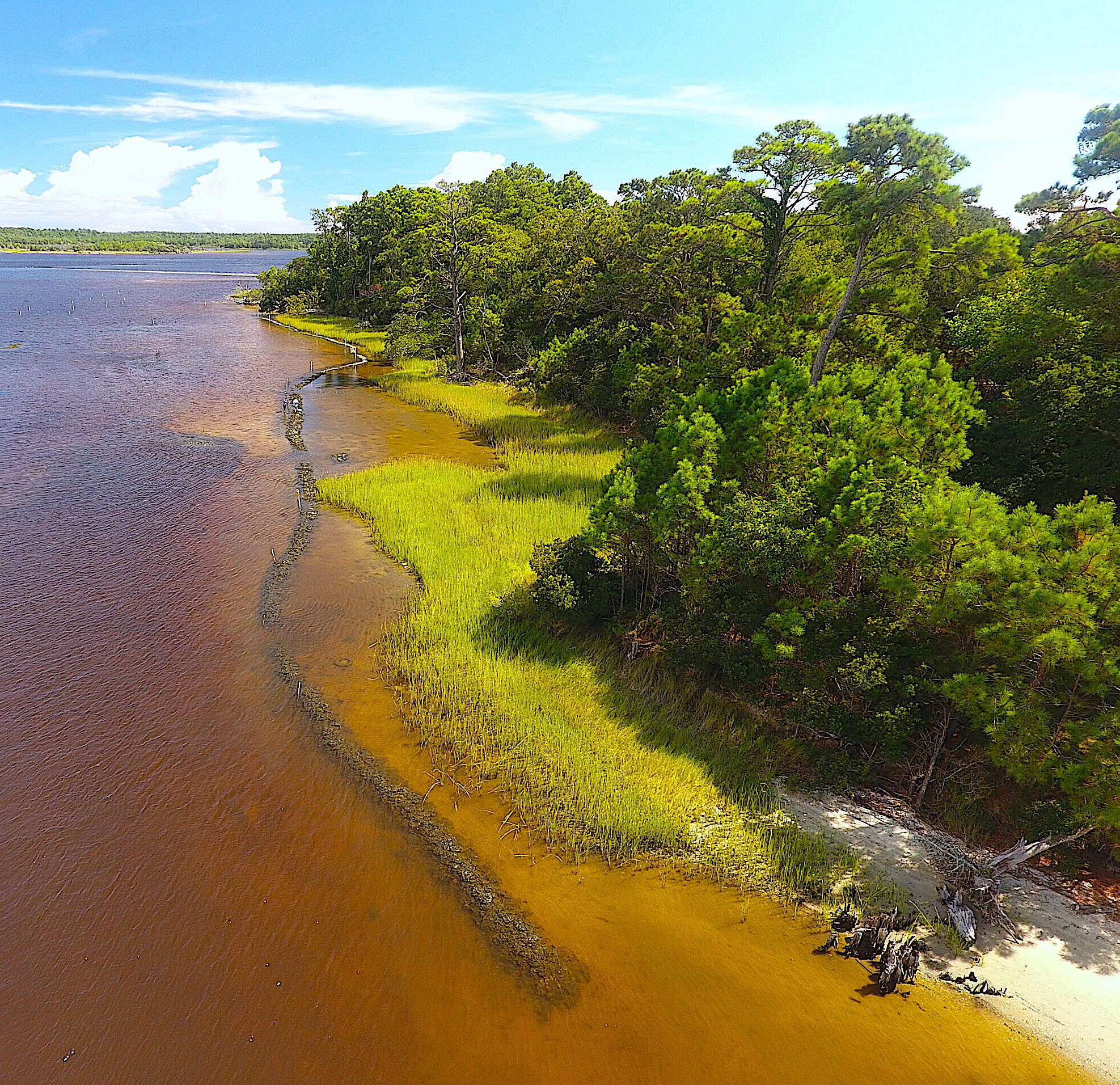
New Projects Advance Shoreline Protection and Coastal Resilience
NOAA’s National Sea Grant College Program and the U.S. Coastal Research Program (USCRP) are backing new work to protect North Carolina’s shorelines. A North Carolina Sea Grant collaboration with East Carolina University and Carteret Community College will develop a framework for coastal protection design and siting, as well as living shoreline training courses and a certification program.
Frank López, extension director for North Carolina Sea Grant and one of the project leads, says the team will survey community members to capture their views on different options for coastal adaptation. At ECU’s Coastal Studies Institute, Rachel Gittman will build on her previous research for USCRP on living shorelines.
“New data will help enhance the effectiveness of different substrates and designs for living shorelines,” López explains. “The team will develop strategies that will help shoreline property owners, permit issuing agencies, and contractors.”
López says the collaboration will inform improvements in coastal protection training and outreach programs, including an expanded pilot course that covers advanced design tracks for waterfront property owners, as well as a design certification program through Carteret Community College.
“This project will help keep our state at the forefront of coastal resilience planning and adaptation,” says Susan White, executive director of North Carolina Sea Grant.
The collaboration is one of 10 to receive support through the NOAA’s National Sea Grant College Program’s work with the USCRP to enhance resilience in coastal communities.
“Through this partnership with the U.S. Coastal Research Program, Sea Grant is able to effectively leverage its nationwide network to help coastal and Great Lakes communities tackle some of the most pressing issues that they face,” says Jonathan Pennock, director of NOAA’s National Sea Grant College Program.
Sea Grant programs across the nation also are receiving additional NOAA Sea Grant support to increase local capacity, engagement, research, and implementation to address resilience challenges. As a result, North Carolina Sea Grant will continue its Coastal Resilience Team Competition fellowships.
These fellowships provide up to $20,000 for one or more student teams to conduct two- year projects that will lead to more resilient ecosystems and communities. Each team will include two to four members, including at least one graduate student who will serve as the project lead, and at least one undergraduate.
— Dave Shaw
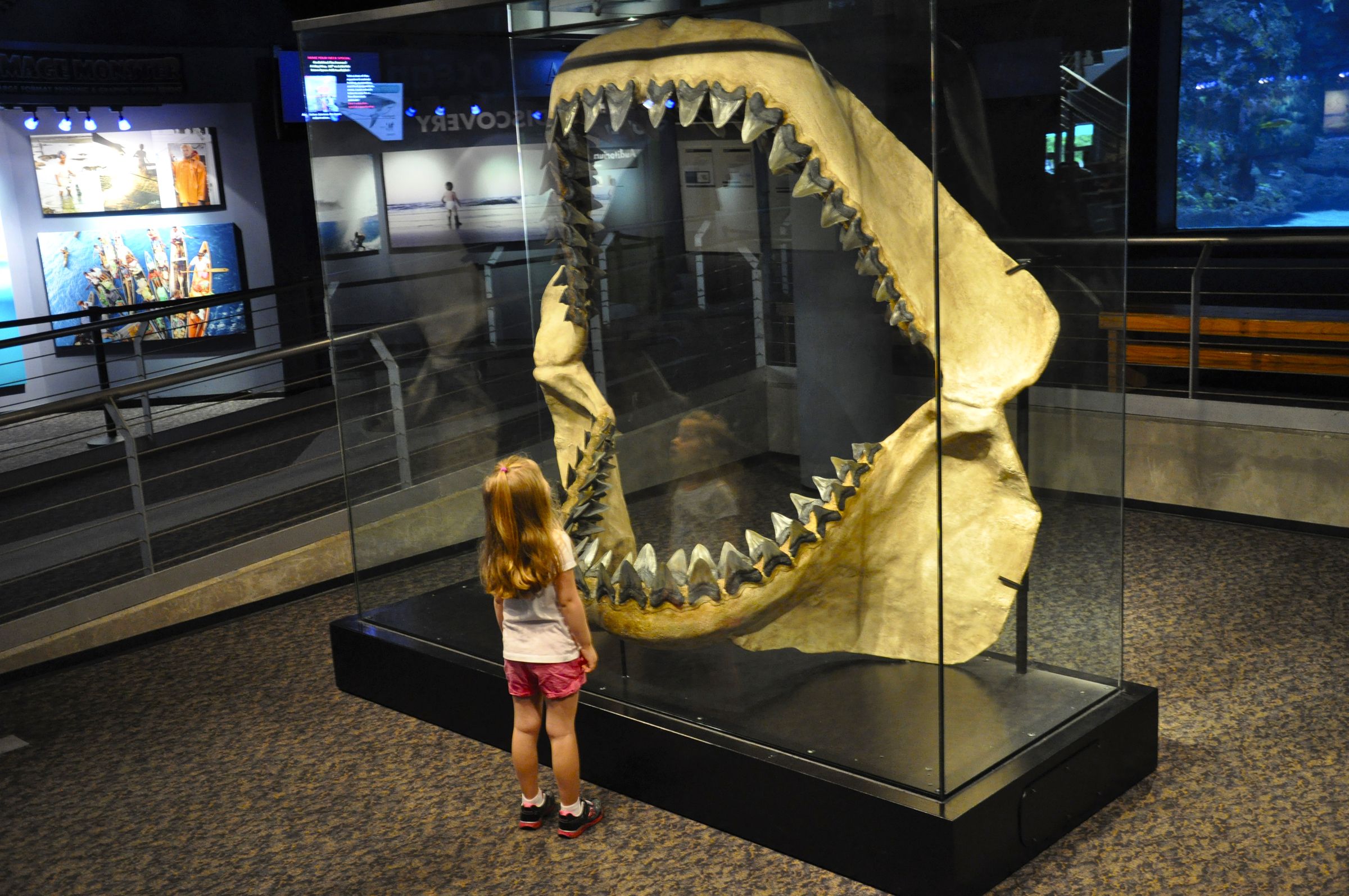
Hook, Line & Science Turns Four
North Carolina Sea Grant’s Hook, Line & Science recently turned four years old. Stories on flounder identification, changes in shrimp abundance, and fish tagging have been the most popular on the site, which has published nearly 200 entries since December 2018.
Scott Baker and Sara Mirabilio, North Carolina Sea Grant scientists who specialize in marine fisheries, established the weekly series to provide saltwater anglers and a broader audience easy access to research-based information and news.
To date, Hook, Line & Science has reached tens of thousands of readers online and found additional audiences on radio programs, in newspapers, and in Coastwatch. Stories have appeared in video formats, as well, for visitors at Jennette’s Pier in Nags Head. Along the way, the series also picked up a national APEX Grand Award for Publication Excellence.
These are the most popular stories from the first four years of Hook, Line & Science:
Catch. Cut. Report. And then collect your reward.
It turns out, most anglers can’t. Luckily, we have some tips.
New research suggests the extinct species could have been nearly 60 feet long.
Are we catching more shrimp offshore during the winter and spring?
New research suggests anglers should think twice about keeping fish that are close to the minimum size limit.
At Wrightsville Beach, 84 different fishes use the surf zone.
Satellite-tagged mahi mahi spend about 40% of their time near the surface and 95% of their day in water 77 to 84°F.
These habitats are vital for N.C.’s important species and for migrating fish.
Research shows warming temperatures cause loggerheads to give birth mostly to female offspring.
Effects on lionfish prey could be bad news for reef diversity.
more: HookLineScience.com

2023 Knauss Fellows Begin Service
The 2023 Sea Grant John A. Knauss Policy Fellows began serving in federal offices in February. Six are graduate students from North Carolina: Carden Barkley, Anastasia Dulskiy, Claire Huang, Margaret Morrison, Rebecca Van Hoeck, and Zoe Wong.
“This is the biggest class of Knauss Fellows that North Carolina has ever had in any one year,” says John Fear, deputy director of North Carolina Sea Grant.
- Carden Barkley received her master’s degree in environmental management from Duke University with a concentration in coastal environmental management.
Barkley says she plans to “use the experiences and connections afforded by the Knauss Fellowship to establish a long career in traceability policy, sustainable fisheries management, and bipartisan collaboration.”
She serves in NOAA’s Fisheries Office of the Assistant Administrator.
- Anastasia Dulskiy, a former North Carolina Sea Grant STEM Policy Fellow completed her master’s in ecology at the University of North Carolina at Chapel Hill.
“The Knauss Fellowship will allow me to extend my passion for ecology to the policy realm,” Dulskiy says.
She serves in the Community Infrastructure Resilience Branch of the FEMA/CSO Hazard Mitigation Assistance Division.
- Claire Huang earned her master’s in environmental management, including a concentration in coastal environmental management, from Duke University.
“The Knauss Fellowship will empower me to pursue advanced scientific leadership roles in marine species conservation and fisheries management,” Huang says.
She serves with the National Centers for Coastal Ocean Science.
- Margaret Morrison also received her master’s in environmental management with a concentration in coastal environmental management from Duke University.
“I am excited by the opportunity to gain a deeper understanding of the federal policy design and implementation processes,” Morrison says.
She serves the Under Secretary of Commerce for Oceans and Atmosphere and NOAA Administrator.
- Rebecca Van Hoeck received her Ph.D. in biology from the University of North Carolina at Chapel Hill.
Van Hoeck says her experience will help her to support “the work of the federal government to achieve sustainable marine ecosystems and economies.”
Like Morrison, Van Hoeck serves the Under Secretary of Commerce for Oceans and Atmosphere and NOAA Administrator.
- Zoe Wong graduated from Duke University with a master’s in environmental management, including a concentration in coastal environmental management.
“The Knauss Fellowship is the best opportunity for me to gain first-hand insight into our systems of lawmaking and policy implementation,” says Wong.
She serves in the Office of Senator Sheldon Whitehouse.
— Carrie Clower
more about the new Knauss Fellows
“Field Inclusive” Launches for a Safer Outdoors
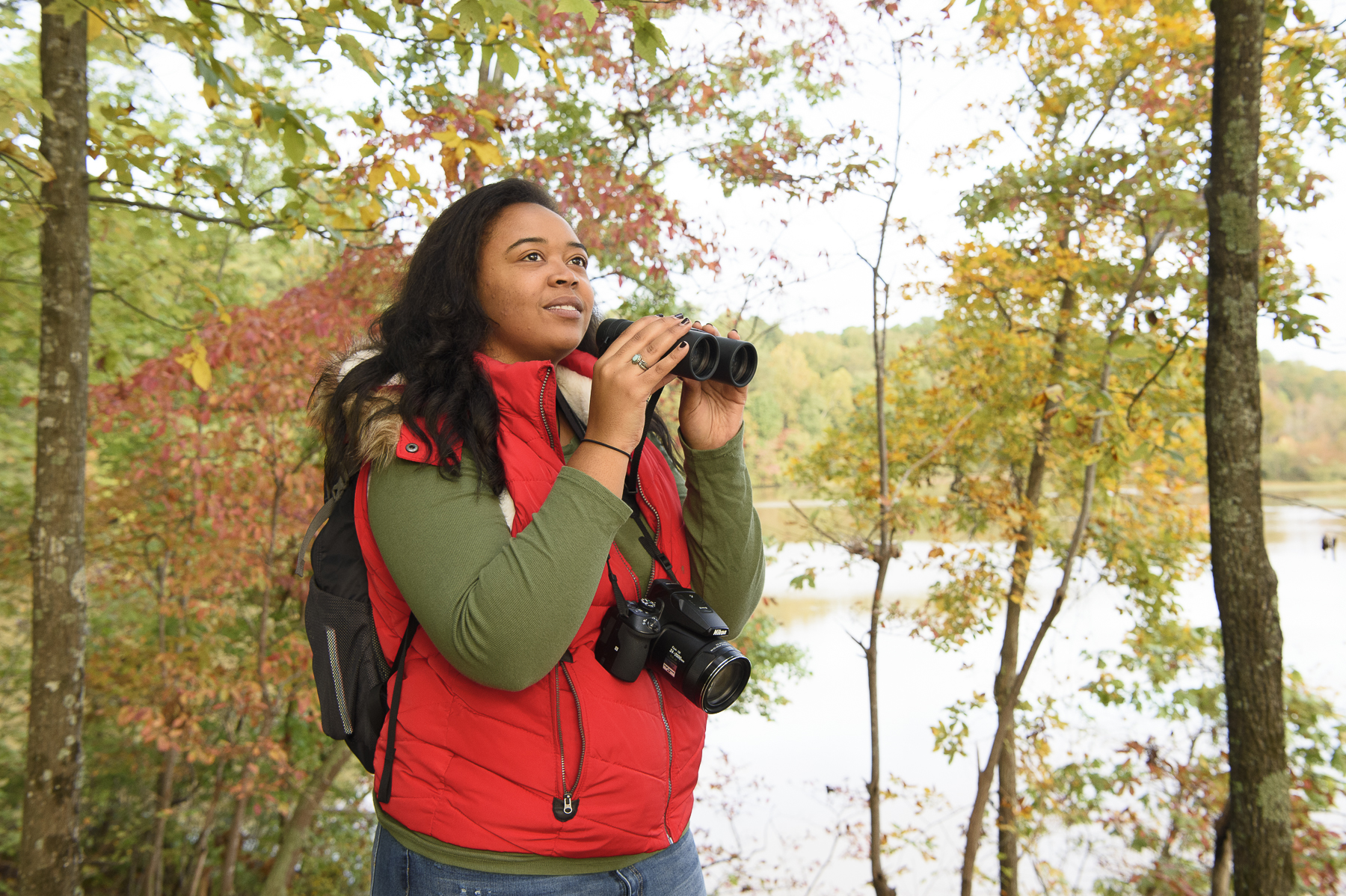
Two NC State University Ph.D. students have founded Field Inclusive, a new nonprofit they designed to support marginalized and historically excluded researchers who professionally work outdoors. Lauren D. Pharr and Murry Burgess lead the nonprofit and plan to offer tangible and actionable improvements nationally for researchers who are targeted based on their race or ethnicity, sexual orientation, disability, gender identity, and/or religion while working in or enjoying the outdoors.
As Black researchers who participate in field work as part of the Fisheries, Wildlife, and Conservation program at NC State, both Pharr and Burgess have faced social field safety issues.
“From our own experiences, as well as hearing from others, we both decided that there needs to be an organization that amplifies this aspect of minorities and historically excluded individuals’ safety in the outdoors,” Pharr says.
North Carolina Sea Grant is among the nonprofit’s supporters. “Field Inclusive has a vision to increase field research representation that aligns with North Carolina Sea Grant’s commitment — and the new organization is well positioned to grow and expand their engagement and impact,” says Susan White, North Carolina Sea Grant’s executive director. “We are pleased to partner together.”
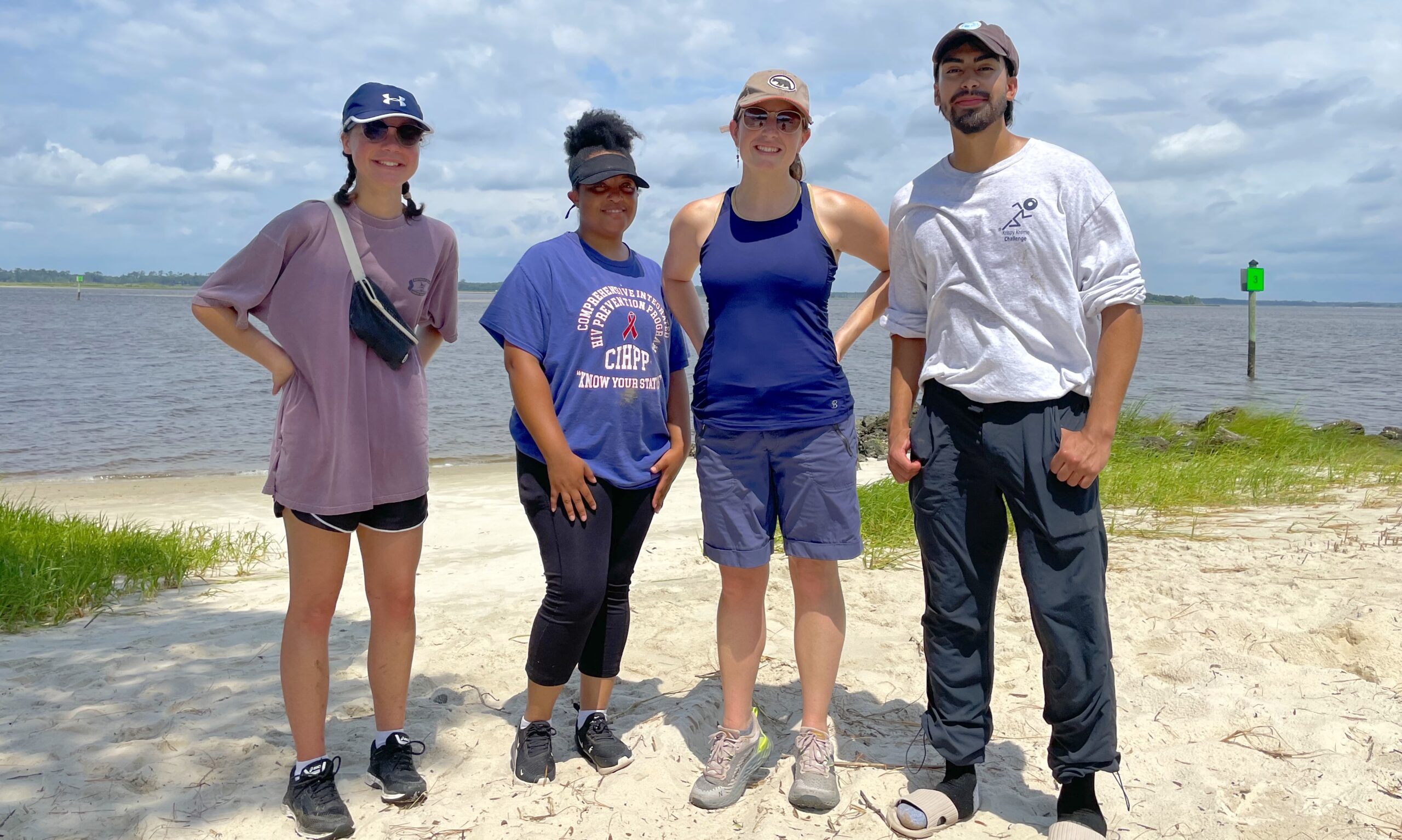
Community-Engaged Interns Serve Across NC
Each year, North Carolina Sea Grant offers opportunities for undergraduate students to join experts across the state in exploring issues that affect local communities.
“As part of National Sea Grant’s Community-Engaged Internship program, they gain hands-on experience with coastal, marine, or Great Lakes issues of environmental, economic, and or social importance,” says Jane Harrison, North Carolina Sea Grant’s coastal economics specialist.
Harrison mentors North Carolina interns and was among the founders of the national program to provide early career experience for students in underserved communities.
Michaela Abraham has served as the mariculture tourism intern, focusing on communications and outreach for the NC Oyster Trail, which included creating social media posts for the Trail’s Facebook and Instagram pages to highlight businesses and restaurants. Abraham, a sophomore at NC State University in fisheries, wildlife, and conservation biology, wrote the cover story on North Carolina’s oysters for the Autumn 2022 Coastwatch.
Corie Griebel and Manny Valbuena served as North Carolina Sea Grant’s inaugural climate justice interns. Griebel and Valbuena also worked with Harrison, as well as with Cayla Cothron, North Carolina Sea Grant’s coastal planning specialist.
Griebel, a senior in environmental science with a minor in sociology at NC State, focused on the intersection of parks and open space with environmental justice, while Valbuena, a junior at NC State studying environmental engineering, opted to look at urban revitalization and renewal. Both took a particular interest in how the City of Raleigh uses equity frameworks.
They each assessed to what extent Raleigh is addressing ongoing strengths, challenges, and opportunities. They also looked at barriers to achieving environmental justice.
Nykira Gibson served as this summer’s Lumber River watershed science education intern, a joint internship with North Carolina Sea Grant and NC Space Grant. Gibson spent the summer working with Erika Young, North Carolina Sea Grant’s coastal and marine education specialist, as well as Jobi Cook, NC Space Grant’s associate director.
One of Gibson’s initial projects involved teaching freshwater ecology at Fayetteville’s Clark Park Nature Center’s summer camps. Gibson, a first-generation college student and native of Robeson County, also partnered with the Unite camp and the NASA Precollege Summer Institute, both at Fayetteville State University, where she is a senior studying biology.
Gibson also worked with UNC Pembroke’s Project 3C, an opportunity for Native American high school students in Hoke, Cumberland, Scotland, and Robeson counties to partake in STEM-focused programming, as well as professional development opportunities.
— Carrie Clower
Sea Grant’s Community-Engaged Internships
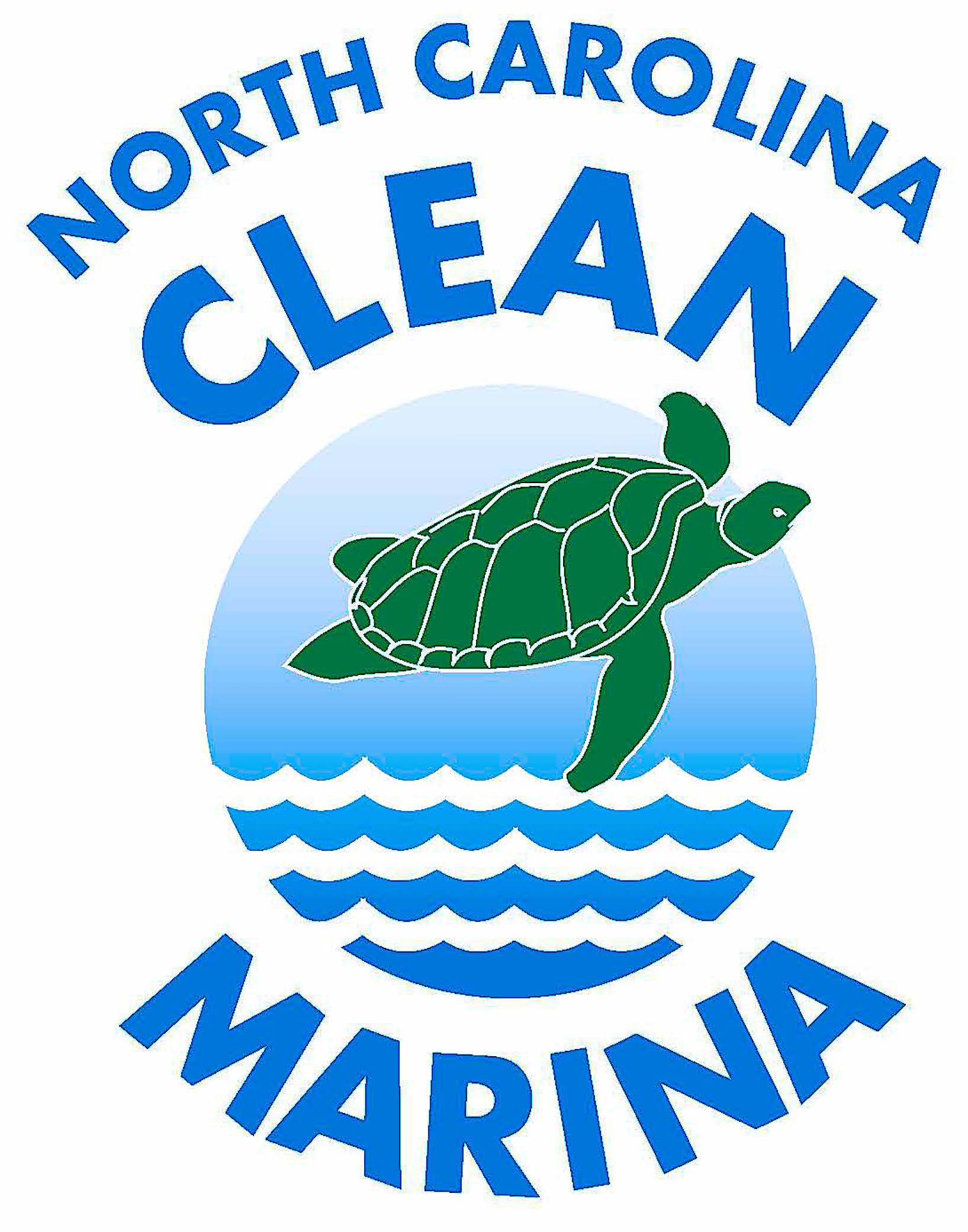
50th Marina Joins NC’s Clean Marina Program January marked the entry of Point Program
January marked the entry of Point Marina/Marine Craft into the North Carolina Clean Marina Program, making the Pamlico County marina the 50th to join. North Carolina’s program is part of a nationwide effort designed to provide cleaner waterways for recreational boaters.
Located in the Broad Creek area, Point Marina is only a 5-mile sail from the Intercoastal Waterway. Its newly acquired Clean Marina status provides Point Marina boaters a safe and clean harbor for fishing or for adventuring onto the Atlantic. The Clean Marina flag flies above the harbor, a privilege members of the program enjoy.
“North Carolina Sea Grant is a proud supporter of the NC Clean Marina Program,” says Gloria Putnam, coastal resources and communities specialist at North Carolina Sea Grant. “We are forever grateful for the clean waters Point Marina provides our anglers.”
North Carolina Sea Grant collaborates on the Clean Marina Program with the North Carolina Division of Coastal Management, the Albemarle- Pamlico National Estuary Partnership, the U.S. Power Squadron, and the U.S. Coast Guard Auxiliary.
- Categories:
